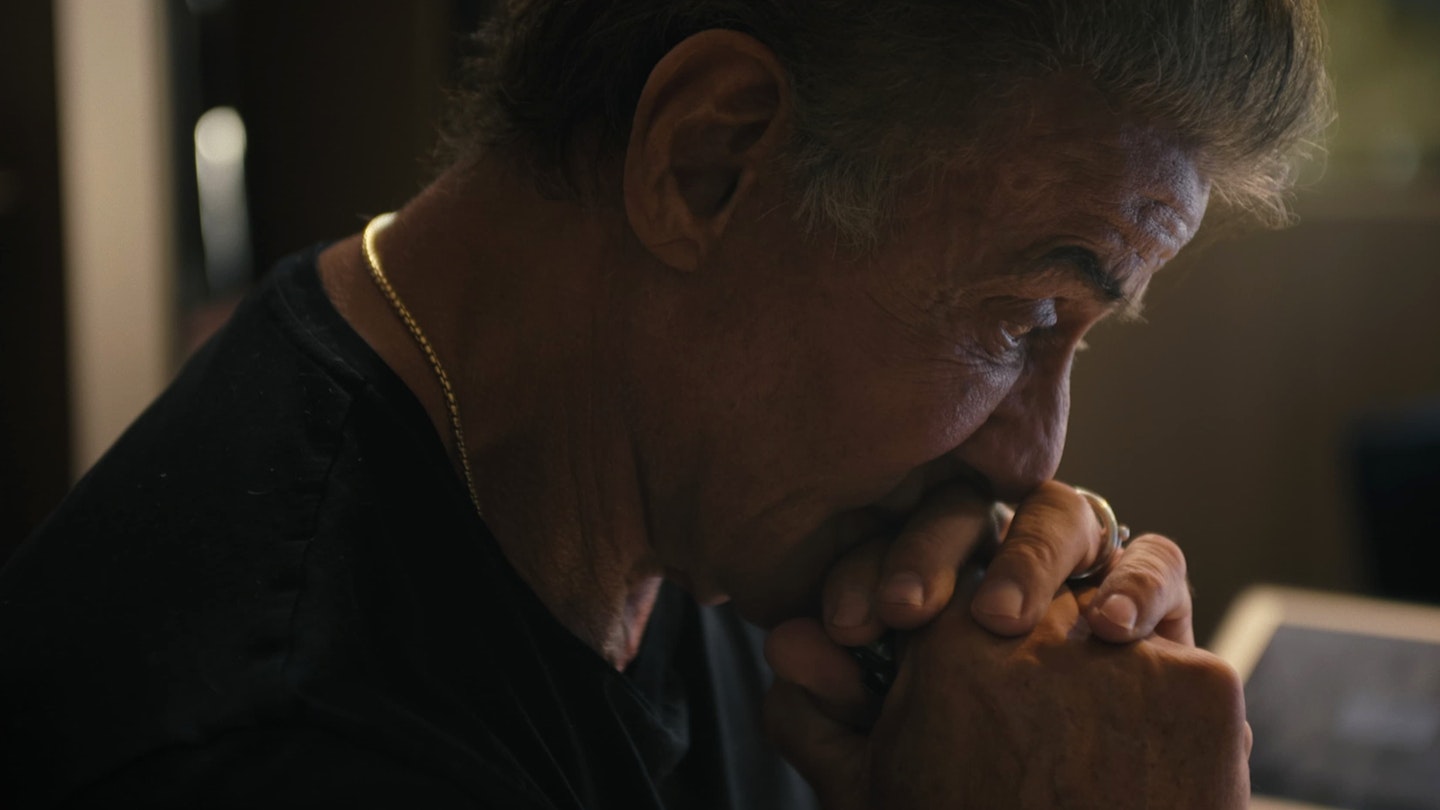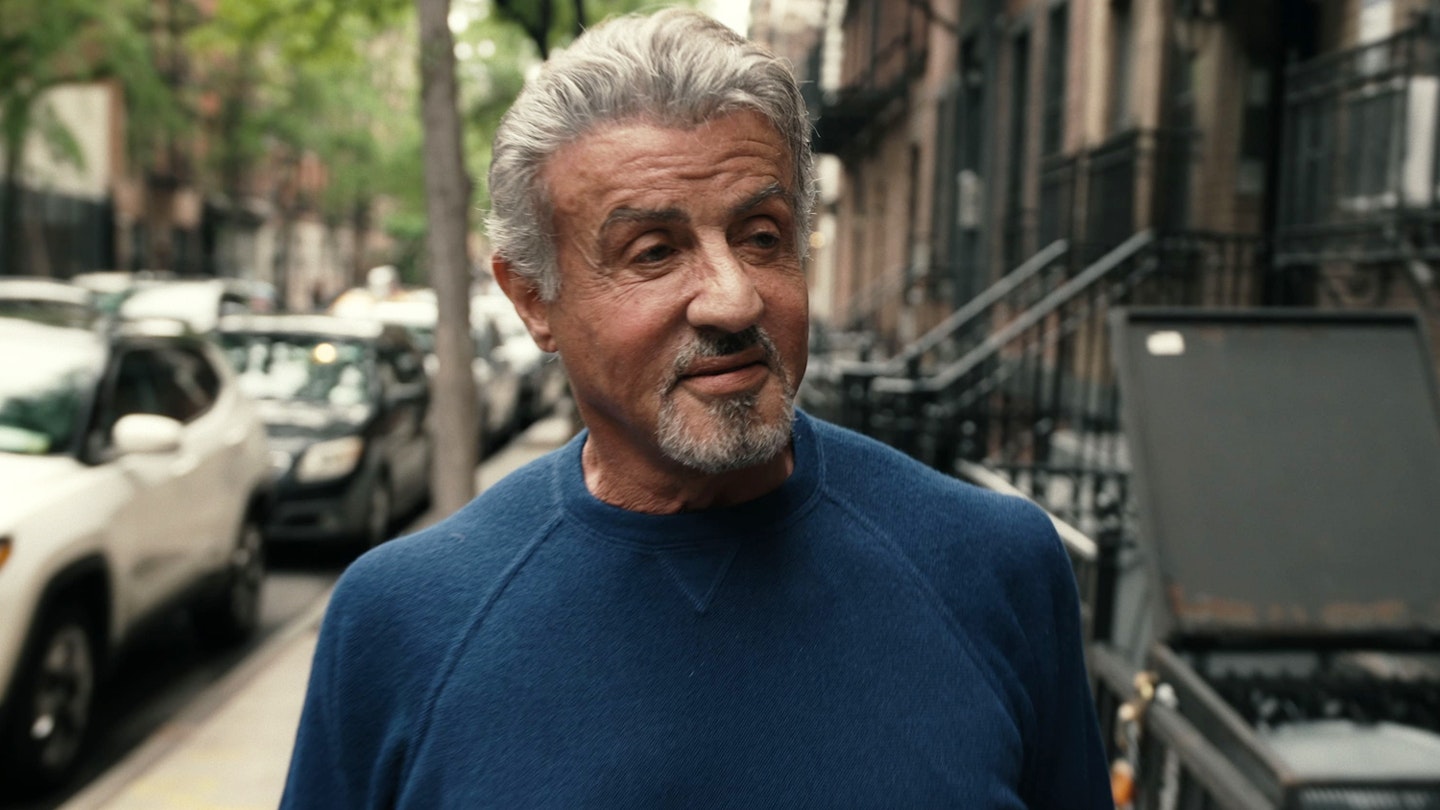“For some men, in 500 words, to completely discredit all that effort,” says Sylvester Stallone in an archive interview in Sly, about the scathing reviews of his 1978 flop F.I.S.T., “I would love to make an appointment with them in any alley they choose.” It’s a somewhat sobering thing for any critic to hear when embarking on their own 500 words, but hopefully no such alley-based appointment will be necessary in this case: we are happy to report that Sly is an eminently watchable film, and Sly is eminently charming, honest, soul-baring company.

The first feature-length documentary about the Italian-American icon, as a subject Stallone proves to be fascinating. Now aged 77, we find him in thoughtful, reflective mode, as he prepares to pack up his house littered with artefacts and memorabilia filled with memories. (A statue of himself as Rocky, arms aloft, sitting in his living room, is a frequent motif.)
We get a potted history of his life, from a tough upbringing in the Hell’s Kitchen neighbourhood of New York (“like an Arthur Miller play”, Stallone observes) with parents who offered little in the way of nurturing; his father, in particular, seemed to be especially cruel and vindictive, and would go on to be needlessly jealous of his son’s later success. Many emotional scars still linger, but Stallone — seeking the love of an audience when his parents couldn’t offer it — channelled that pain into his work, writing his own parts when casting directors would only see him as a thug.
Stallone’s résumé is rattled through with the occasional insight.
The account of his film career won’t be especially surprising to anyone who’s paid an interest in him: the improbable success of Rocky, the overnight fame, the transition to action hero with Rambo, the slow decline in the ’90s, the rekindling of past glories with The Expendables. It’s a résumé that’s rattled through with the occasional insight — Stallone notes the parallels between Rocky’s trainer Mickey and his real-life relationship with his father — and it’s bolstered with some great talking heads, including Quentin Tarantino, old frenemy Arnold Schwarzenegger, and former co-star Henry Winkler (who does a nailed-on Stallone impression). But there are few big surprises.
Thom Zimny’s direction generally plays things disappointingly safe, and you sometimes wonder if there could have been more probing, had there been a more objective eye (in common with other recent big-name documentaries, the subject also has a producing credit here). There are also some odd filmmaking choices; the camera on Stallone is distractingly shaky, to the point that even Paul Greengrass might want to have a word.
But it’s Stallone himself who is the obvious biggest draw. Like Rocky himself, he cuts a tough but vulnerable figure: full of regrets and pain, but justifiably proud of the accomplishments littered throughout a remarkable career. “Nobody is gonna hit as hard as life,” says his most famous creation in Rocky Balboa; after watching Sly, you understand where this line might have come from.
